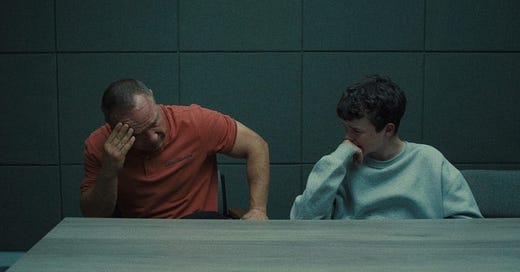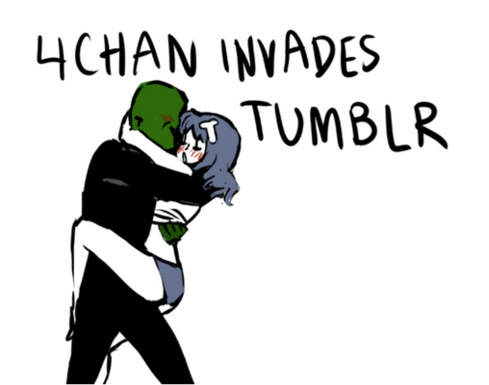After fifteen years of a life lived online, almost all of us have succumbed to a relationship with the screen where we have (unwittingly) sacrificed our concentration, reading of books and mental wellbeing to a box made of metal and glass.
Sure, we can now do everything from order groceries to a hookup with the touch of a button, but millions of us have begun to question whether this is worth a much higher price we’re all paying – and none more than young people. A life lived online is great for finding where you are going or summoning the Deliveroo guy, but the growing political, cultural, social and mental unrest a digital life is undoubtedly creating feels like a pretty steep price for a speedy kebab or being able to find out who that actor is in that show you like instantaneously.
For Gen Z and Gen A – the first true digital natives – there is no knowledge or memory of a life BP (before phones). They have never known a world without social media or being able to keep track of each other and the entire world 24/7, and we’re just learning now the extent to which algorithms and the constant gazing at the screen has shaped every part of them.
One of the areas this is playing out most obviously and scarily is politics.
Two generations ago, young people largely had their political and social outlooks shaped by first parents or family and then friends and people and movements they became interested in. To become interested, this took some work. You had to watch the news, read newspapers or magazines, go and see people who inspired you talk in the real world, and quite often read books. This meant whether you lent left, right or somewhere in the middle, you still received a fairly balanced and informed view of the world. Newspapers and magazines in the large part had a legal relationship with truth and facts and couldn’t just proclaim the moon was made of cheese or women had inferior brains without some substantial basis of fact and evidence. Similarly, though many idiots have and still do write books, but lots of brilliant people do too, and if you read at all, you’d encounter a range of opinions.
It's not an exaggeration to say that social media – especially for Gen Z and Gen A – is media and most of them get the vast majority of their opinions and information from the galaxy of social media voices and spaces who opine on every issue under the sun. And this is where the problem starts.
The idea that everyone has an equal voice and anyone with a phone can make it heard was an exciting idea in principle. It removed the old media gatekeepers who tended to give the megaphone to a pretty narrow group of people, and it also meant we got unfiltered news in real time – the Arab spring of 2011 an excellent example of social media’s potential to deliver news through an iron wall of censorship and political oppression.
But then things went seriously awry.
At some point around 2014 – lots of internet nerds will label ‘Gamergate’ in 2014 – as the red flag of the direction of travel we were all about to head in, things started to take on a distinctly different tone. Social media became less jokey and ‘Charlie bit my finger’ and took on a nastier, bullying tone. People started to get harassed, doxed and cancelled for stupid transgressions and people started to take obvious sides.
There was the nasty, puckish and distinctly right-wing voices that tended to proliferate on places like 4Chan, Breitbart and the Drudge Report and the finger-wagging, scolding, often aggrieved left-wing who liked Tumblr, Buzzfeed and Jezebel.
And out of this started to emerge distinctly male and female tribes on the internet and the tone was distinctly hostile. Women were painted as shrewish, inferior feminists and men were painted as sexist, potential rapists who were also inferior in a different way and though of course not everyone went into the tribes or their ideologies, lots did, and the battlelines were drawn.
Out of this hostility over the course of a decade more extreme voices were born and so was the idea of ‘red-pilling’ a concept taken from the film the Matrix (amusingly a film made by two trans women), where young men were encouraged by increasingly powerful and influential voices to ‘take the red pill’: a completely metaphorical concept of relinquishing all notions of equality, inclusivity or kindness and realigning yourself with your true, alpha, male nature.
And then the concept became less metaphorical.
The more extreme voices of this red-pilled manosphere also encourage male dominance not just through MMR fights with your buddies, getting ripped, or being disciplined (none of which are problematic on their own), but also through subjugating girls and women through any means necessary including physical, mental and sexual violence.
And it’s not unreasonable to say, this has spread like a virus through young men globally, and we are now seeing every day, the grim and tragic consequences.
Every day we are hearing about stories of girls and women who were victims of violence from boys and men who fell under its spell.
But it’s not just the victims we hear about in the news. The tribal politics of the internet has driven the greatest chasm between boys and girls and young men and women we’ve witnessed in modern history and it’s sown a distrust and tragic separation meaning boys and girls hang out less with each other, are friends less with each other, date less, have less happy and consenting sexual relationships with each other and on a personal level are less happy and confident than they’ve ever been. And it’s not completely to do with tribal online politics, red-pilling and cultural warfare – but this is a big part of it. Sooner or later if you are advised long and often enough to hate or be suspicious of a group of people – that’s exactly what happens.
And the problem is, boys and girls, men and women have to live in the world together. The world is not a Snapchat group where it’s OK to crack rape jokes and it’s not a TikTok movement where it’s possible to avoid boys at all costs – it’s the world, where we all have to figure out a way to get on and rape, violence, nasty words, hatred has real consequences – often not the right ones, but there are still consequences.
This week, Netflix released a show starring national treasure Stephen Graham depicting a family where (SPOILER ALERT) the 13-year-old son has murdered a girl who was a school friend who rejected him. We learn he’s been heavily influenced and shaped by the manosphere and rejection from a girl was just not acceptable by the lore of red-pilling. What’s so brilliant and brutal about this show is how normal and in many ways lovely, the character (stunningly played by newcomer Owen Cooper) is. He’s just like many of your sons, nephews, grandsons and family friends.
Because this isn’t niche, underground stuff, it’s ideology and culture and ideas being spoonfed into the brains of normal kids 24/7 and we are starting to see the harrowing consequences everywhere.
I implore you to watch Adolescence – preferably with your teens.
I think we’ve all been getting slowly sicker for the last fifteen years on a steady diet of phones and social media and this sickness has affected the young and vulnerable the most. I’m not advocating to go back to letter writing because we live in a tech world, but it’s time to start thinking of another way: old school Nokia’s until kids are fifteen, making serious noise to control and legislate on what’s being said on social media platforms so they are held responsible for the content, but most importantly, talk to your kids. Get them thinking and reading widely, but most importantly, get them off their screens and back in the real world, where they are reminded of each other’s humanity – and not the poisonous screed of some influencer who’s getting rich off their misery and hate.
Because if we don’t – we’re all going to get sicker, not least our kids.















Really interesting thanks. Particularly agree the last bit “but most importantly, talk to your kids. Get them thinking and reading widely, but most importantly, get them off their screens and back in the real world, where they are reminded of each other’s humanity” - yes more controls but we all need to invest time in providing a positive, interesting and fulfilling real world for young people. Start by making this the most important thing we ever do.
Thanks for sharing . A great summary.